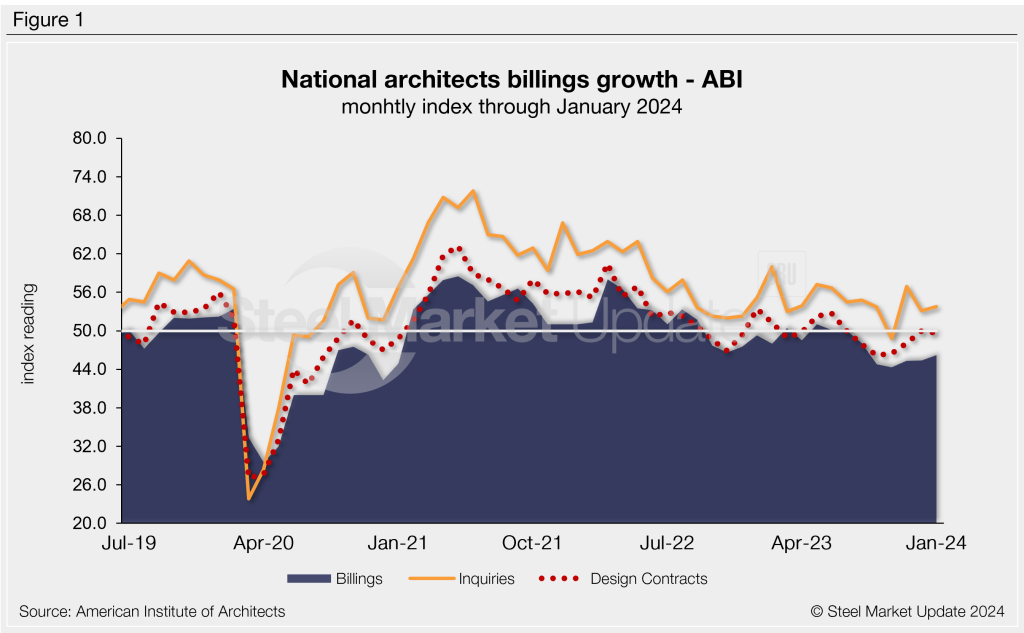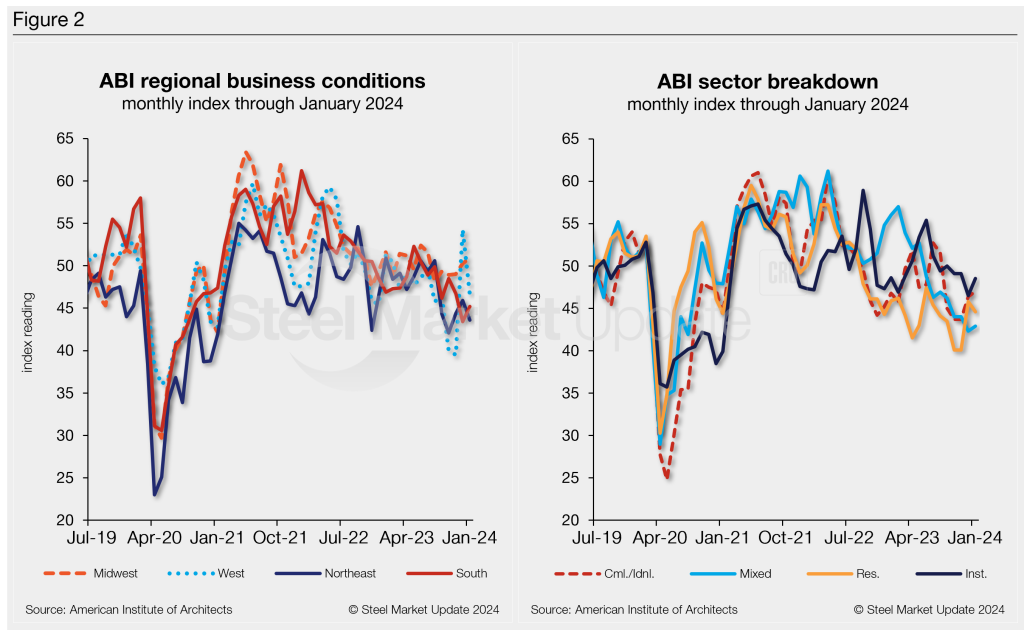Market Data
February 22, 2024
Architecture Billings Index remains soft in January
Written by David Schollaert
The Architecture Billings Index (ABI) reading from the American Institute of Architects (AIA) and Deltek showed a slight uptick in January but continued to signal soft conditions.
The index inched up from 45.4 in December to 46.2 in January. While the index has moved higher consecutively each month since October, it remains in contraction territory.
January’s headline index was three points lower than the 49.3-point reading during the same month of 2023.
The ABI is a leading economic indicator for nonresidential construction activity with a lead time of 9-12 months. Any score above 50 indicates an increase in billings. A score below 50 indicates a decrease.

“This now marks the lengthiest period of declining billings since 2010, although it is reassuring that the pace of this decline is less rapid and the broader economy showed improvement in January,” AIA chief economist Kermit Baker said in the latest report.
Despite these conditions, Baker noted that most firms are reporting “growth with inquiries into new projects and value of newly signed design contracts is holding steady, showing potential signs of interest from clients in new projects.”
Newly signed design contracts were at 49.7 in January, just marginally below the 50-point threshold seen the month prior, the report said.
Results were mixed across the country. The Midwest and Southern regions inched up, while the Northeast and Western regions saw a drop, AIA said.

“Business conditions remained weak at firms in all regions of the country except the Midwest, where modest growth was seen in three of the last four months,” the report said.







